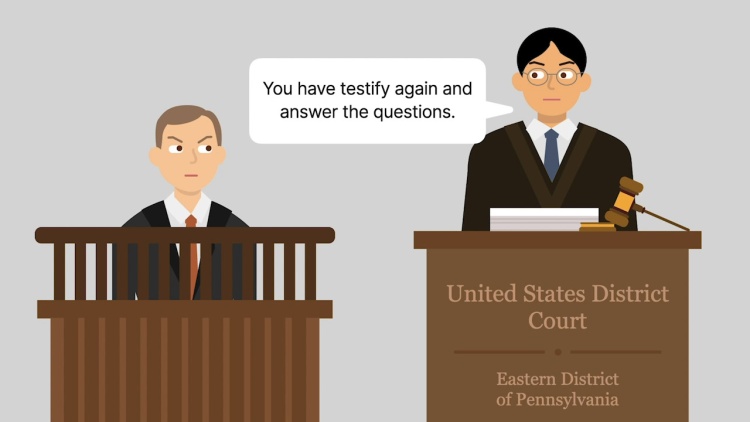Hoffman v. United States
United States Supreme Court
341 U.S. 479 (1951)
- Written by Sarah Venti, JD
Facts
Hoffman was subpoenaed and appeared before a grand jury to testify regarding his knowledge of a fraud upon the federal government. The grand jury was impaneled to carry out an extensive investigation of rackets in the area. When called to testify, Hoffman refused to answer most of the questions the prosecution asked him. Hoffman would not tell the grand jury what line of work he was in. While he admitted to knowing one Weisberg for at least twenty years, Hoffman would not say when he last saw him, when he last spoke with him on the phone, or whether he knew the man’s current whereabouts. Weisberg had been subpoenaed but had not appeared for the grand jury proceeding. Hoffman refused to answer these questions because he feared his answers would incriminate him of a federal offense. The district court found no real and substantial danger that Hoffman’s answers would incriminate him and ordered him to return to the grand jury and answer the questions. When Hoffman said that he still would not answer the questions, he was convicted of criminal contempt. The court of appeals affirmed the conviction.
Rule of Law
Issue
Holding and Reasoning (Clark, J.)
What to do next…
Here's why 907,000 law students have relied on our case briefs:
- Written by law professors and practitioners, not other law students. 47,100 briefs, keyed to 996 casebooks. Top-notch customer support.
- The right amount of information, includes the facts, issues, rule of law, holding and reasoning, and any concurrences and dissents.
- Access in your classes, works on your mobile and tablet. Massive library of related video lessons and high quality multiple-choice questions.
- Easy to use, uniform format for every case brief. Written in plain English, not in legalese. Our briefs summarize and simplify; they don’t just repeat the court’s language.





